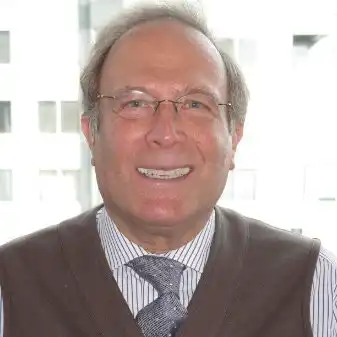Home>Larry Loeb: an American Abroad in CDG's Paris
24.05.2020
Larry Loeb: an American Abroad in CDG's Paris
When he picks up the phone to discuss his time at Sciences Po, Larry M. Loeb is careful to clarify that he was a study abroad student, not a graduate of the school. Still, it is immediately clear that his year in Paris was a life-changing experience.
An undergraduate at Tulane University, Loeb moved to France in 1960. He studied at a Sciences Po that would be, except for the iconic façade at 27 rue St. Guillaume, alien to its students today. “It was kind of a snobbish school,” he says, where “they wore coats and ties every day to go to class,” with a copy of that day’s edition of le Monde in hand. Students reviewed material from their lectures via polycopies, lecture notes taken by court stenographers and made available for purchase. Today 45 percent of the university’s students come from foreign countries, but in 1960, Loeb recalls, Sciences Po was nearly completely French.
This was also an uneasy time in France’s history. Loeb studied in Paris during the Algerian war. “We kept waiting for paratroopers to jump into Paris…the police were carrying machine guns in the streets,” he says. He recalls the rapt attention people paid political developments: “Everyone was glued to the TV sets when [Charles de Gaulle] would speak.” The Fifth Republic had been established two years prior.
But for all the particularities of the historical events that Loeb witnessed in Paris, other elements of his time at Sciences Po will sound familiar to other alumni. Decades later, he keeps in touch with friends he made that year. And though he only spent a year at Sciences Po, that experience shaped his career.
Loeb says his year at Sciences Po was one that had an outsized impact on him. Upon returning to the United States, he was awarded a Woodrow Wilson Fellowship, which brought him to the Columbia University government department. This, he says, was “an extension of what I was doing at Sciences Po.” Next came law school.
Throughout a career at the intersection of media, law, and business, that year at Sciences Po continued to serve him well. At ABC and Hearst, Loeb constantly found himself in situations requiring the judgement and skills that he developed during that year in Paris. “At Sciences Po one develops a certain sensitivity to the politics of where you are, so you carry that sensitivity with you,” he says.
This awareness guided him through his tenure on the legal committee of the European Broadcasters Union, a public broadcasters’ trade group. He was working for ABC in legal international programs. At the time, Luxembourg and Monte Carlo were the only countries on the continent with commercial stations. This political savvy also came in handy at Hearst, where he got involved in joint ventures with international magazines.
The outlook cultivated by his Sciences Po background helped, and so did his French language skills. At ABC, Loeb was appointed to a board at Eurosport—he was the only one on the team with the requisite French speaking abilities. And he swears by it: “If you speak French it’s a different dynamic,” saying his language skills got him invited by colleagues to their homes to meet their families.
Loeb has a few thoughts about the ever-changing media landscape. The demise of print media, and especially local news coverage, is a popular refrain. The New York Times recently reported that more than one-fifth of local newspapers in the United States have folded. Loeb, though, offers reason for optimism. “I think local journalism will always exist in print,” he says, continuing, “you want to know what the high school football team is doing, you want to know what the city council is doing.” And print will continue to reign in another area: The medium thrives with popular fashion and architectural magazines, though Loeb cautions that this varies with the nature and quality of the product.
That said, Loeb says that the media industry will adapt. Young people prefer to consume information digitally. There might come a time when you can’t buy a paper like the New York Times on a street corner.
In the meantime, Loeb, who recently retired, has turned his attention from the future of media to his Proust reading group: “I mean they’re not even reading Proust in France anymore!”
But in addition to a taste for French literature, Sciences Po left him with something else. “I think the experience of Sciences Po for an American student is like a lucky strike extra,” he says. It’s a “distinguishing mark.”
